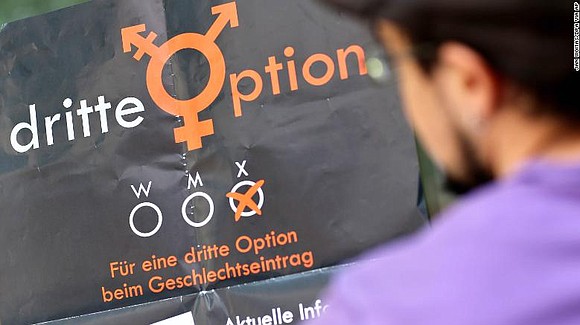Germany's Top Court Tells Lawmakers to Recognize 'third gender'
CNN/Stylemagazine.com Newswire | 11/8/2017, 6:51 a.m.

By Judith Vonberg, CNN
(CNN) -- Germany's top court ruled Wednesday that lawmakers must legally recognize a "third gender" from birth.
Once a law is passed, Germany would become the first European country to offer intersex people the option of identifying as a designation other than male or female.
The court ruled that the current system, which "does not provide for a third option -- besides the entry 'female' or 'male,'" is unconstitutional.
In 2013, Germany became the first European country to allow parents of intersex children to leave the gender box blank on a birth certificate.
But Wednesday's ruling in the case, which was brought by an intersex person, goes further, requiring lawmakers to create the possibility for a "positive gender entry" for these babies.
The new legislation must be in force by December 31, 2018, the court said.
Johannes Dimroth, spokesman for Germany's Interior Ministry, said Wednesday: "We fully respect the decision of the Federal Constitutional Court and the government is fully willing to implement the decision."
What is 'intersex'?
Between 0.5% and 1.7% of the global population is born with intersex traits, which means a person does not have typical male-female sex characteristics, according to the United Nations.
Some intersex traits are visibly evident, such as ambiguous genitalia, while there are a number of others which involve genetic, hormonal or anatomical differences.
Many intersex children around the world are subjected to surgery to give them the appearance of a conventional male or female gender, according to the UN. Such procedures are often painful and irreversible and can cause permanent infertility as well as long-term mental health problems.
But several countries and regions are now moving away from the traditional binary understanding of gender. In 2014, the Australian high court ruled that the government should legally recognize a third gender. And earlier this year, California became the second US state (after New York) to allow state residents who don't identify as male or female to change their birth certificates to match their gender identity.



